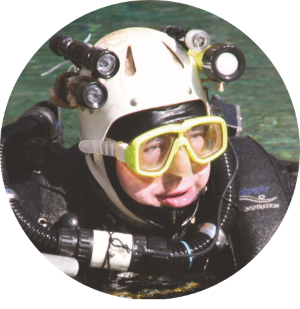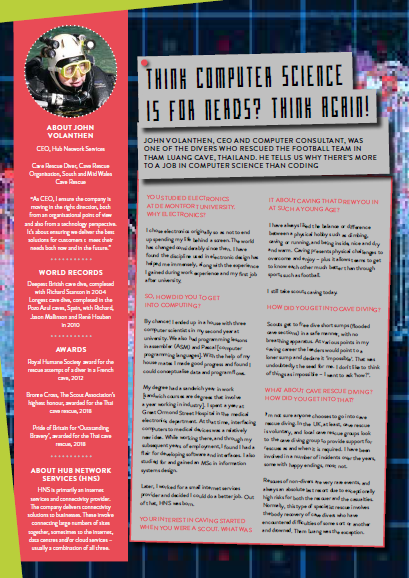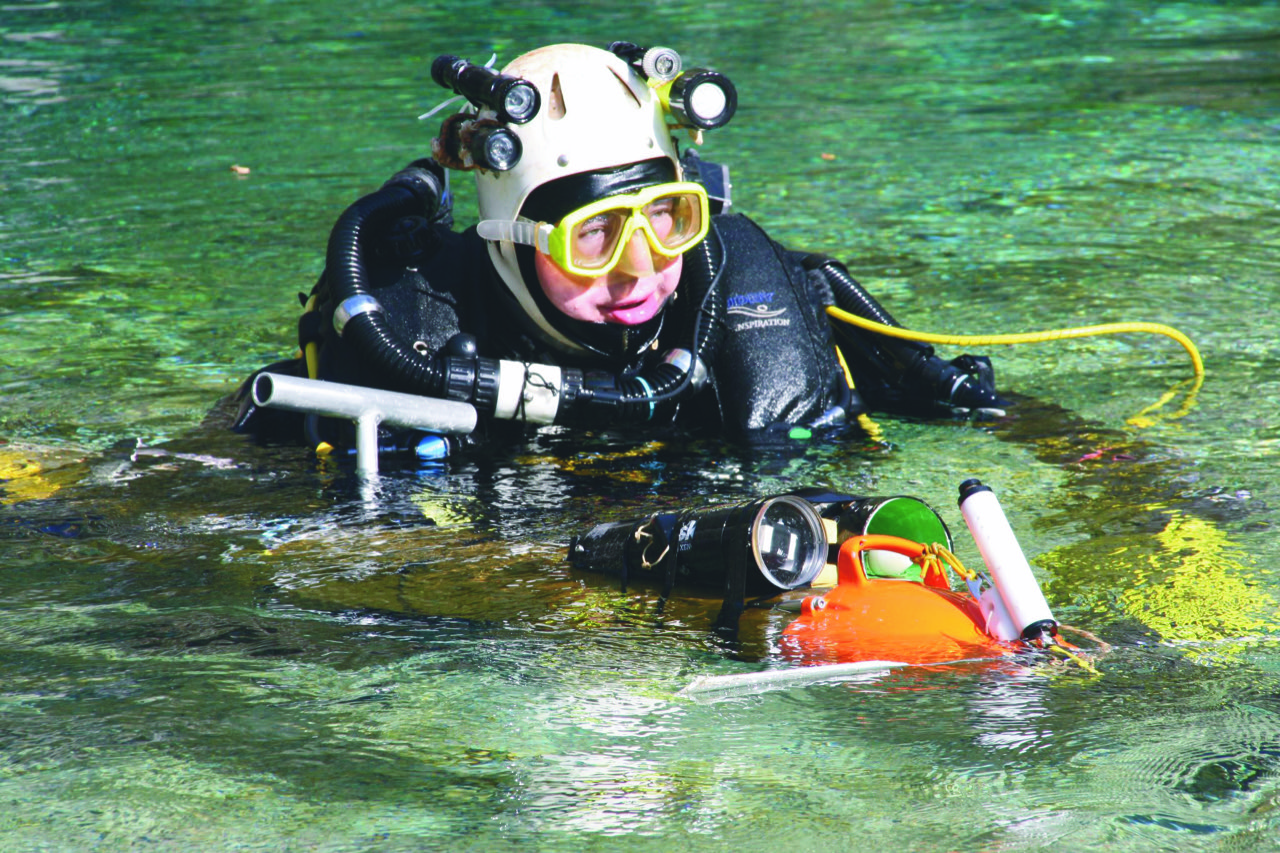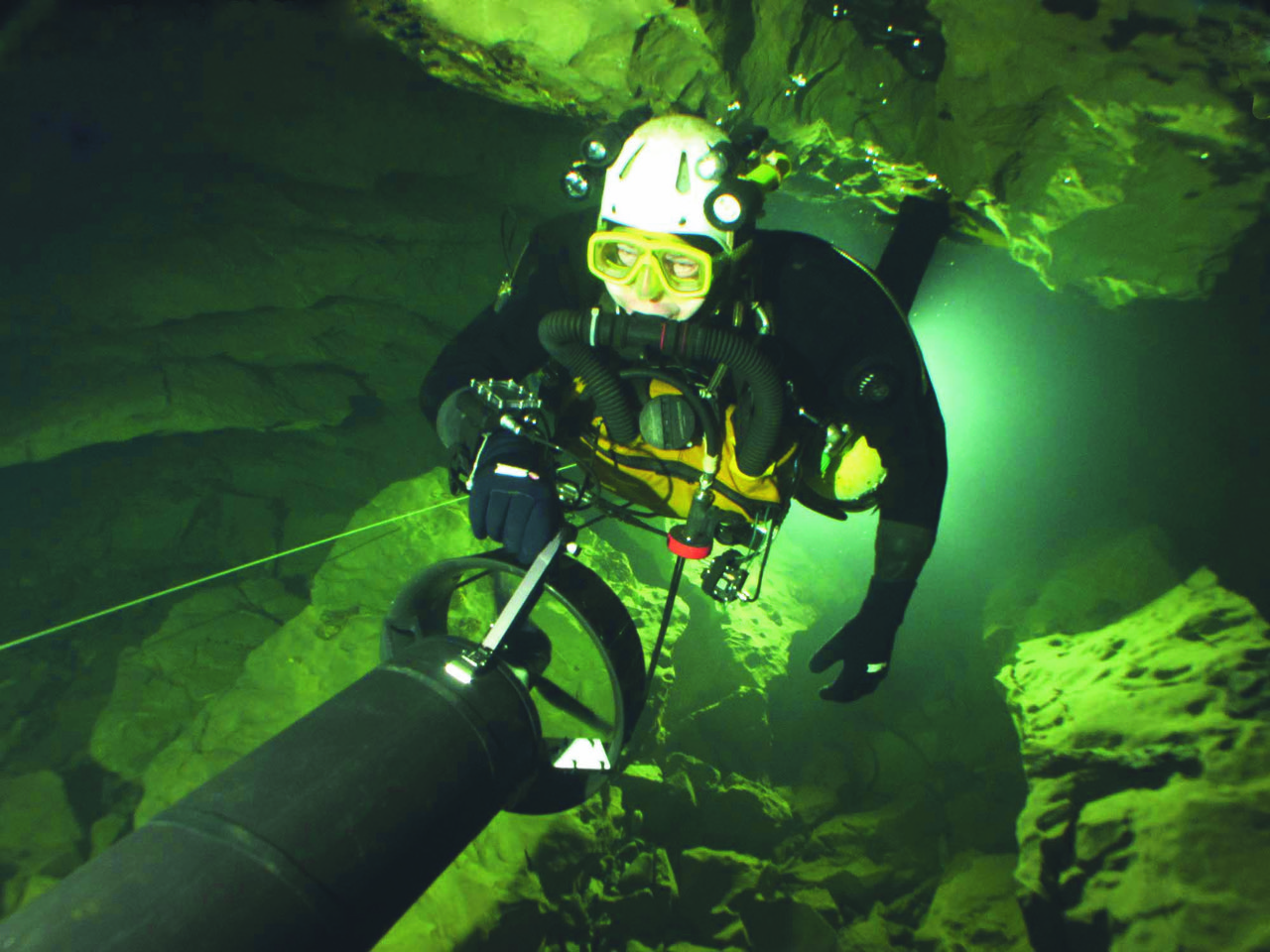Think computer science is for nerds? Think again!
JOHN VOLANTHEN, CEO AND COMPUTER CONSULTANT, WAS ONE OF THE DIVERS WHO RESCUED THE FOOTBALL TEAM IN THAM LUANG CAVE, THAILAND. HE TELLS US WHY THERE’S MORE TO A JOB IN COMPUTER SCIENCE THAN CODING
YOU STUDIED ELECTRONICS AT DE MONTFORT UNIVERSITY. WHY ELECTRONICS?
I chose electronics originally so as not to end up spending my life behind a screen. The world has changed considerably since then. I have found the discipline used in electronic design has helped me immensely, along with the experience I gained during work experience and my first job after university.
SO, HOW DID YOU TO GET INTO COMPUTING?
By chance! I ended up in a house with three computer scientists in my second year at university. We also had programming lessons in assembler (ASM) and Pascal [computer programming languages]. With the help of my house mates I made good progress and found I could conceptualise data and program flows.
My degree had a sandwich year in work [sandwich courses are degrees that involve a year working in industry]. I spent a year at Great Ormond Street Hospital in the medical electronics department. At that time, interfacing computers to medical devices was a relatively new idea. While working there, and through my subsequent years of employment, I found I had a flair for developing software and interfaces. I also studied for and gained an MSc in information systems design.
Later, I worked for a small internet services provider and decided I could do a better job. Out of that, HNS was born.
YOUR INTEREST IN CAVING STARTED WHEN YOU WERE A SCOUT. WHAT WAS IT ABOUT CAVING THAT DREW YOU IN AT SUCH A YOUNG AGE?
I have always liked the balance or difference between a physical hobby such as climbing, caving or running, and being inside, nice and dry and warm. Caving presents physical challenges to overcome and enjoy – plus it allows teams to get to know each other much better than through sports such as football.
I still take scouts caving today.
HOW DID YOU GET INTO CAVE DIVING?
Scouts get to free dive short sumps (flooded cave sections) in a safe manner, with no breathing apparatus. At various points in my caving career the leaders would point to a loner sump and declare it ‘impossible’. That was undoubtedly the seed for me. I don’t like to think of things as impossible – I want to ask ‘how?’.
John Volanthen
John explores the Rinquelle Resurgance cave in Switzerland
YOU STUDIED ELECTRONICS AT DE MONTFORT UNIVERSITY. WHY ELECTRONICS?
I chose electronics originally so as not to end up spending my life behind a screen. The world has changed considerably since then. I have found the discipline used in electronic design has helped me immensely, along with the experience I gained during work experience and my first job after university.
SO, HOW DID YOU TO GET INTO COMPUTING?
By chance! I ended up in a house with three computer scientists in my second year at university. We also had programming lessons in assembler (ASM) and Pascal [computer programming languages]. With the help of my house mates I made good progress and found I could conceptualise data and program flows.
My degree had a sandwich year in work [sandwich courses are degrees that involve a year working in industry]. I spent a year at Great Ormond Street Hospital in the medical electronics department. At that time, interfacing computers to medical devices was a relatively new idea. While working there, and through my subsequent years of employment, I found I had a flair for developing software and interfaces. I also studied for and gained an MSc in information systems design.
Later, I worked for a small internet services provider and decided I could do a better job. Out of that, HNS was born.
YOUR INTEREST IN CAVING STARTED WHEN YOU WERE A SCOUT. WHAT WAS IT ABOUT CAVING THAT DREW YOU IN AT SUCH A YOUNG AGE?
I have always liked the balance or difference between a physical hobby such as climbing, caving or running, and being inside, nice and dry and warm. Caving presents physical challenges to overcome and enjoy – plus it allows teams to get to know each other much better than through sports such as football.
I still take scouts caving today.
HOW DID YOU GET INTO CAVE DIVING?
Scouts get to free dive short sumps (flooded cave sections) in a safe manner, with no breathing apparatus. At various points in my caving career the leaders would point to a loner sump and declare it ‘impossible’. That was undoubtedly the seed for me. I don’t like to think of things as impossible – I want to ask ‘how?’.
WHAT ABOUT CAVE RESCUE DIVING? HOW DID YOU GET INTO THAT?
I’m not sure anyone chooses to go into cave rescue diving. In the UK, at least, cave rescue is voluntary, and local cave rescue groups look to the cave diving group to provide support for rescues as and when it is required. I have been involved in a number of incidents over the years, some with happy endings, most not.
Rescues of non-divers are very rare events, and always an absolute last resort due to exceptionally high risks for both the rescuer and the casualties. Normally, this type of specialist rescue involves the body recovery of cave divers who have encountered difficulties of some sort or another and drowned. Tham Luang was the exception.
YES, YOU WERE PART OF THE RESCUE TEAM THAT SAVED 12 YOUNG FOOTBALLERS AND THEIR COACH TRAPPED IN THE THAM LUANG CAVE IN THAILAND. WERE YOU SCARED AT ANY POINT?
The diving conditions at Tham Luang were well within our capabilities, although there were some specific difficulties that required great respect – the low visibility, and the complexity and size of the passage in places needed concentration. The scary part was taking another human life from a relative place of safety, placing them directly in harm’s way and being solely responsible for their survival.
WHAT WAS THE HIGHLIGHT OF THAT RESCUE MISSION?
The success rate was unexpected. Given the difficulty of the mission, to achieve 100% success was almost unbelievable. It is very hard to explain to non-cavers why the children could not remain in the cave but, writing this now in December, the water level in Tham Luang still hasn’t dropped enough to walk out.
YOU MENTIONED IN AN INTERVIEW WITH THE BBC THAT CAVE DIVING “IS VERY CALCULATING, VERY CALM”. DOES IT HELP TO HAVE A HEAD FOR MATHS?
Maths helps with diving to some degree, but I think the real key is problem solving – being able to look at all the variables of a situation, make a sensible rational decision and follow it through. I liken this to the old problem with the chicken, the fox and the grain, and how to get them across the river – Google it!
A TYPICAL STEREOTYPE OF SOMEONE WORKING IN COMPUTERS IS THAT OF A NERD WITH TERRIBLE SOCIAL SKILLS. WHAT DO YOU SAY TO THAT?
I might have agreed with you 25 years ago, but not today. Good computer scientists require a very different mindset and understanding than just playing games. All businesses need highly competent IT teams and individuals, all the way up to board level [top management]. These people, male and female, employ a raft of skills, including communications, finance and many others.
FINALLY, WHAT ADVICE DO YOU HAVE FOR YOUNG PEOPLE WHO ARE CONSIDERING A CAREER IN COMPUTING, BUT ARE A LITTLE UNSURE WHETHER COMPUTER SCIENCE IS FOR THEM?
Computer science offers not just a grounding in traditional programming, but also in structured thinking – and now offers a career path from a coding job all the way to the boardroom.
 ABOUT JOHN VOLANTHEN
ABOUT JOHN VOLANTHEN
CEO, Hub Network Services
Cave Rescue Diver, Cave Rescue Organisation, South and Mid Wales Cave Rescue
“As CEO, I ensure the company is moving in the right direction, both from an organisational point of view and also from a technology perspective. It’s about ensuring we deliver the best solutions for customers to meet their needs both now and in the future.”
WORLD RECORDS
Deepest British cave dive, completed with Richard Stanton in 2004
Longest cave dive, completed in the Pozo Azul caves, Spain, with Richard, Jason Mallinson and René Houben in 2010
AWARDS
Royal Humane Society award for the rescue attempt of a diver in a French cave, 2012
Bronze Cross, The Scout Association’s highest honour, awarded for the Thai cave rescue, 2018 Pride of Britain for ‘Outstanding Bravery’, awarded for the Thai cave rescue, 2018
ABOUT HUB NETWORK SERVICES (HNS)
HNS is primarily an internet services and connectivity provider. The company delivers connectivity solutions to businesses. These involve connecting large numbers of sites together, sometimes to the internet, data centres and/or cloud services – usually a combination of all three



